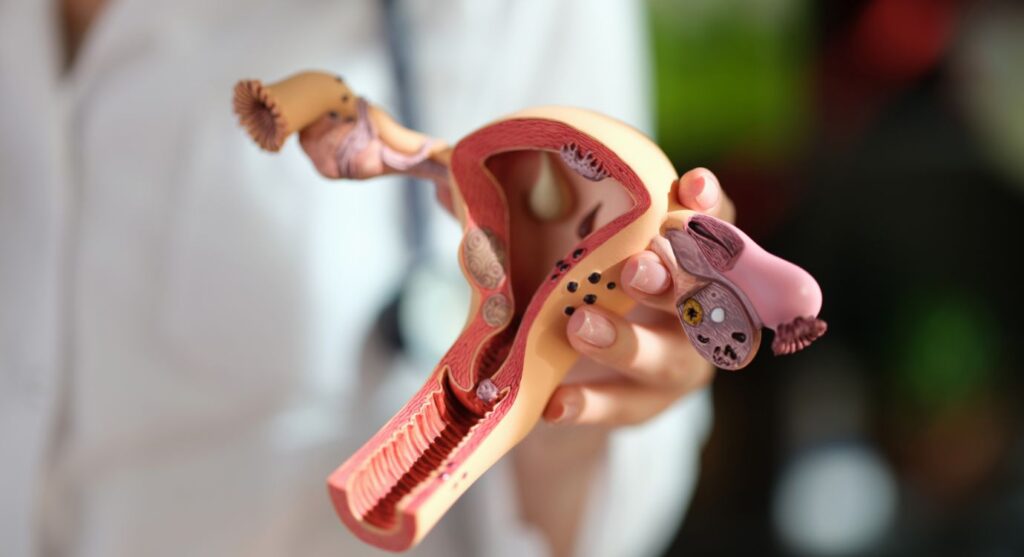Whether you’re a parent, guardian, or simply curious about the incredible benefits of magnesium for kids, we’ve got you covered.
Magnesium is an essential mineral responsible for more than 300 biochemical processes in the body. From promoting healthy growth and development to boosting energy and fuelling the mind, this mineral is a true hero in supporting the well-being of children.
So, stick with us as we take a deeper look at magnesium for children, including:
- Why magnesium is important for kids
- The signs of low magnesium in children
- How to make sure children get enough magnesium
… And more! Let’s dive in.
In this guide:
What are the symptoms of low magnesium in kids?
There are a number of symptoms children experience that may actually be caused by a magnesium deficiency. So, what signs might indicate a child is low in magnesium? And is it really possible to tell?
In general, symptoms of a magnesium deficiency in children can be divided into two categories: behavioural, and physiological.
Behavioural symptoms which might be masking a magnesium deficiency include:
- Moodiness and irritability
- Hyperactivity
- Insomnia and trouble staying asleep
- Difficulty sleeping
- Anxiety and excessive worrying
Moreover, the physical symptoms of a deficiency in children may manifest as:
- Lack of appetite
- Fatigue
- Nausea
- Stomach cramps
- Teeth grinding
- Eye twitching
- Noise sensitivity
- Growing pains
- Constipation
Of course, all the above may also be signs of other underlying conditions, traits, or health problems.
So, it is difficult to diagnose a magnesium deficiency based purely on the presentation of one or more of these symptoms, particularly in young children. It is always worth keeping an open mind and, of course, speaking with a medical professional about any concerns.


Why would a child need magnesium?
Why is magnesium important for children? Where do we begin!?
Magnesium is crucial for maintaining good health and supporting development in children due to its prevalence in a number of essential processes in the body.
The mineral is required in more than 300 chemical reactions, as well as impacting a number of crucial systems and bodily functions. These include both muscle and nerve functioning, blood sugar regulation, bone growth and development, and DNA and RNA synthesis.
Essentially, the presence of magnesium is crucial for cellular activity as a whole.
In particular, with children, magnesium plays a significant role in regulating mood and supporting sleep. Without the optimal levels of magnesium, it becomes difficult for children to maintain a balanced mood, leading to irritability and symptoms similar to that of ADHD (in particular, anxiety and hyperactivity).
A number of studies support the use of magnesium for children to help reduce symptoms of a number of conditions, including autism as well as ADHD.
Read more: Magnesium for sleep
Magnesium for children with ADHD
One small study, published in Science Daily, was conducted off the back of hypotheses that linked ADHD – the most common neurobehavioral disorder presenting for treatment in young people and children – with magnesium deficiency.
Notably, many symptoms of both ADHD and magnesium deficiency present in the same way (including anxiety and hyperactivity).
The study was conducted on 25 patients with ADHD alongside a control group of the same size.
Research findings concluded that magnesium deficiency was present in 18 (72%) of children with ADHD. Of these, the children who were given magnesium supplementation over a few weeks (exactly half of this group) experienced improved cognitive function.
This was in terms of both inattention and hyperactivity, with the former showing a statistically significant improvement of 77.7% and the latter 88.9%.
The paper also theorised reasons for the relationship between children with ADHD and their tendency towards magnesium deficiencies.
Rather than being a causal relationship, or evidence to doubt the existence of either a magnesium deficiency or ADHD, researchers pointed to the increased difficulty of ensuring children with this condition maintain a balanced diet when increased food sensitivity is likely.
In short, it is less likely that children with ADHD and autism (the two of which are closely related and often experienced simultaneously) will consume enough magnesium through a natural diet, making children with these conditions more likely to suffer from magnesium deficiencies.
Magnesium for children with autism
As early as 1978, studies linked autism spectrum disorder (ASD) with magnesium deficiency.
Rimland et al. concluded that year that magnesium could be involved in autism, autism spectrum disorder, or pervasive developmental disorder. Further studies in 2008 also concluded that magnesium has the potential to prevent encephalopathy and developmental delay in children.
How much magnesium do kids need?
The recommended dietary intake of magnesium for children aged 4 to 8 is 130mg. Older siblings aged 9 to 13 should have 240mg each day. However, there is no harm in children consuming more magnesium than the recommended amount here, so long as it is through natural means (via food and drink).
So if your child solely eats broccoli (unlikely but possible!), there’s no need to worry about overdoing it on the magnesium front.
However, do note that excessive use of magnesium supplements can be toxic, age regardless. In addition to what children are consuming from food, the highest dose for magnesium supplements is:
- 65 mg/day for children ages 1-3
- 110 mg/day for children ages 4-8
- 350 mg/day for adults and children ages 9 and upwards
Note that some children may experience mild side effects from magnesium. In the Science Daily study described above, 22% of the cases given magnesium supplements treatment suffered from mild attacks of abdominal pain or diarrhea.


How to include more magnesium for kids
The best way, by far, to ensure children are consuming enough magnesium is by making sure that they are getting a nutritious, magnesium-rich diet. Magnesium-rich foods include:
- Broccoli and leafy greens
- Nuts and seeds
- Legumes
- Whole grains
- Low-fat milk and yogurt
If your child is particularly picky (as many are!), try and incorporate some of these ingredients into a smoothie or deserts, for example, including good quality almond butter or sneaking spinach into a smoothie. Or chop up vegetables into super small pieces in dishes such as pies or macaroni, cheese, or other pasta.
10% off on your first order
Complete this one-minute quiz and find the right products for you.
How to choose the best magnesium supplements for kids
There are a number of factors to consider when choosing any form of supplement, but it’s always especially important to carefully choose a high-quality product when giving it to kids.
We also recommend speaking to a medical professional if you are considering giving magnesium supplements to your child. They will provide you with guidance on the best type of magnesium, suitable dosages and guidance for safe use.
But, when choosing a supplement, there are a number of other elements to consider:
Choose a form of magnesium that is highly absorbable
Magnesium citrate, magnesium glycinate, and magnesium L-threonate are all excellent choices in this sense. Choosing a form of magnesium with good bioavailability will mean the maximum possible amount of the mineral enters the body and bloodstream.
Read more: Types of magnesium
Choose a form of magnesium that is well researched
Magnesium citrate is the most well-researched form of magnesium and regularly features in studies conducted on magnesium and children. As such, you can feel safe in the knowledge that you are giving your child a form of magnesium with a good safety profile.
Consider the reason for consumption
If you are considering giving your child magnesium to complement treatment or improve symptoms of ADHD or autism – both of which are neurological conditions – choosing a form of magnesium, such as magnesium L-threonate, might be a good option.
This is due to magnesium L-threonate’s unique ability to cross the blood-brain barrier. This means it is the only form of magnesium that can effectively increase magnesium levels in the brain.
Read more: Guide to magnesium L-threonate
Always ensure the magnesium is of high quality
Ensure that the magnesium you are buying is of high quality and that any added ingredients are complimentary as opposed to unnecessary. Choose an organic form where possible, free from heavy metals and any unnecessary toxins and chemicals. Always make sure a brand includes a lab report for its product. This will ensure its origin and safety profile are all available to you.
Frequently asked questions:
Should I give my child magnesium?
If you suspect your child is deficient in magnesium, try and improve consumption rates in their diet first. But yes, magnesium supplementation can be helpful for some children. Always speak with a medical professional before giving magnesium supplements to your child.
Why would a child need magnesium?
Some children may not receive as much magnesium as necessary through their diet. Magnesium is an essential mineral responsible for more than 300 biochemical processes in the body. It’s also crucial to growth and development, meaning its really important that children get the magnesium they need.
What age can kids take magnesium?
Most guidelines recommend dosages from one year upward. If you are thinking of giving a magnesium supplement to a young child, always speak with a health professional first.
Final thoughts
The list of symptoms associated with magnesium deficiency is long! There could always be the chance that children suffering from symptoms as diverse as upset stomachs to excessive worry and anxiety over school or friends could actually be due to a magnesium deficiency.
In particular, behavioural problems can often be associated with nutrient deficiencies, so assessing a child’s diet and finding any ways to cram in more of the good stuff is always a good starting point.
However, if any of these symptoms are causing your child problems, it’s important to check in with a medical professional. They could indicate the presence of a more serious condition or simply just not point to a magnesium deficiency in some cases.
Many things can be fixed with a balanced diet, but supplements can also play a part in supporting health and well-being in children, as well as in adults. Just be mindful of dosage guidelines and try to improve diets first where possible.
















































































































































